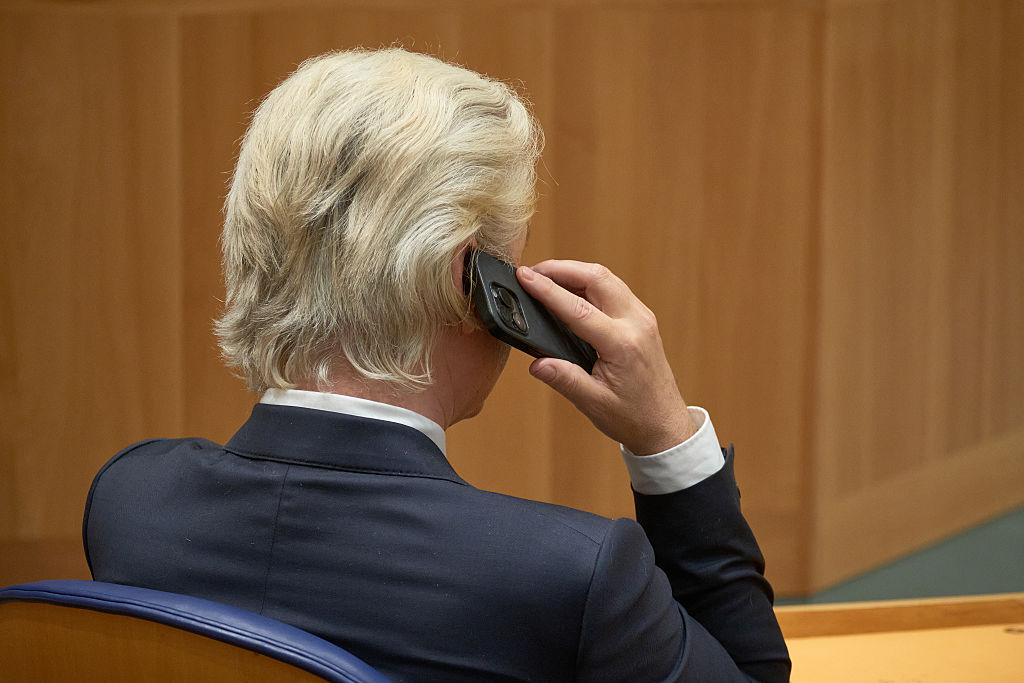The new US-EU trade deal has spawned a legion of critics who allege European Commission President Ursula von der Leyen cravenly capitulated in the face of American pressure. They would have known this was the likely outcome had they simply understood the teachings of an ancient Greek historian.
Thucydides was an Athenian nobleman writing in the late 5th Century BC. His landmark history of the Peloponnesian War between that era’s two great powers, Athens and Sparta, remains one of the greatest documents that golden era produced.
It gains its enduring reputation from its unerring insight into power politics and human psychology. Thucydides grasped as perhaps no writer before Machiavelli how human beings behave when faced with the temptations and perils of geopolitics.
His famous description of the Athenian destruction of the island city state of Melos is the description par excellence of a ruthless power pursuing its aims without regard to justice.
Thucydides explains that the Athenians, hard pressed by the Spartans, arrive on the island with a simple demand: Join our side in the war or be destroyed. Melos is tiny compared with great Athens and stands no rational chance of survival, but nonetheless seeks to persuade the attackers that they – an independent, sovereign city-state – be permitted to remain neutral.
Athens rejects this, contending that what we would today call the law of nature dictates that powers rule what they are able to and that the security of their empire demands that they follow that law regardless of whether such action might be considered just. They succinctly describe their doctrine with one phrase: “The strong do what they can and the weak suffer what they must.”
In the trade negotiations between the US and the EU, as in the preceding negotiations over NATO spending, it is clear that the United States is strong while the European Union is weak.
Europe’s economy is large but relatively stagnant. Its largest nations – France, Italy, and Germany – have endured slow growth for years, and all three are either loaded with debt or in a recession. A trade war would significantly harm the European economy at a time when it is ill prepared to endure continued decline.
America’s economy, by contrast, is relatively vibrant. It has grown at a 2-3 per cent clip since the 2008 crash, and its labour market is the envy of the developed world.
These trends have exacerbated since Russia’s invasion of Ukraine. The EU economy grew by less than 1 per cent in 2023 and 2024, and advanced at a mere 1.6 per cent annual rate in the second quarter of this year. The US, by contrast, grew at a 3.0 per cent annual rate in the second quarter on the heels of a nearly 3 per cent growth rate in the two prior years.
Von der Leyen thus knew that inviting Trump’s wrath would harm the feebler economy much more and much faster than European retaliation would hurt America’s.
Resistance would thus lead to the EU’s eventual surrender anyway, as the leaders of the EU’s major nations would not want to face the political consequences of an economic slowdown. That surrender would surely lead to an even worse deal than the one von der Leyen agreed to.
Some Europeans would surely object to this and contend that America ought to refuse to take advantage of their weaker ally. But Thucydides has an answer to this, too.
Athenian representatives at the outset of the war tell the Spartans that they have acted more justly than they were compelled to. Yet, they say, this very lenience has merely brought contempt rather than gratitude.
It’s hard to deny that America’s global pre-eminence since 1945 has been unjust to their allies. The Marshall Plan rebuilt Europe; NATO and other military alliances kept the allies free. The post-1989 economic consensus enriched America but also contributed to the enrichment of the allies. Compared to the way Soviets ruled their empire or how the Chinese are treating each nation they trade with, America’s fairness stands out even more.
Nor is it true to say that Europe’s relative weakness was forced upon it by its benefactor. America did not compel EU nations to utterly disarm after the dissolution of the Soviet Union, leaving them wholly reliant on American arms. Nor did the United States force EU countries to enact the punishing taxes and strangling regulations that hold back their economic growth.
No, Europe’s weakness is a choice, not the result of malign American acts. Europe has chosen to be economically and militarily dependent upon America. If America’s fear of China now forces it to reassess the terms of its ascendancy, it should have come as no surprise to anyone in Europe paying the slightest bit of serious attention.
Europe must therefore strengthen itself before it is able to push back against American pressure. The NATO declaration that member nations will increase spending to 5 per cent of GDP, 3.5 per cent of which is dedicated to hard military power, is a first step to regaining the power it desires. Reforming the social-economic contract to encourage more innovation – and permit more risk – is another step it must undertake to regain strength.
Failure to do these things means that Europe will be like late 19th Century Ottoman Empire, the sick man of the world. History teaches us that sick nations get carved up by avaricious healthy ones, and the 21st century so far promises to be no less avaricious than the preceding ones.
And if that is Europe’s chosen fate, it perhaps is in its interest that America becomes its master. For even under one as disliked in Europe as Trump, it remains true that a strong America will govern the weak under its umbrella much more justly than would the alternatives.





If Europeans are shocked by Trump’s move on Ukraine, they do not understand the man